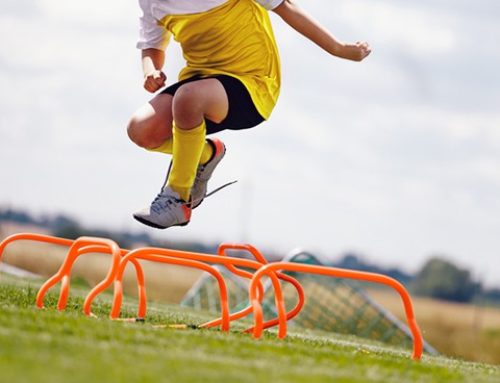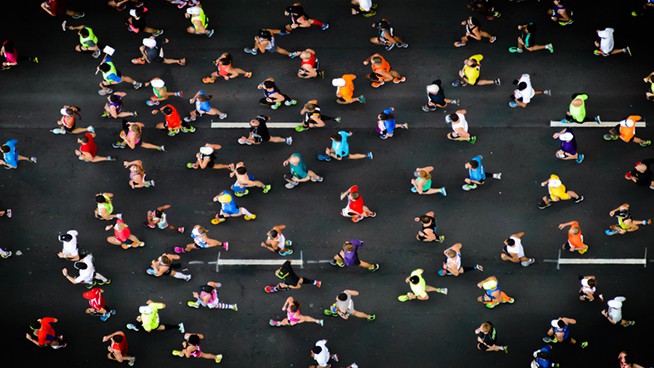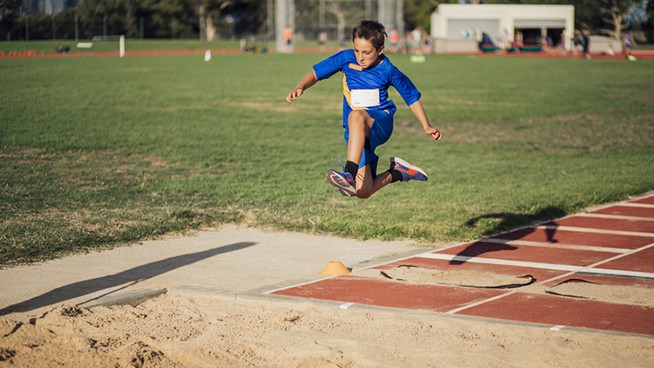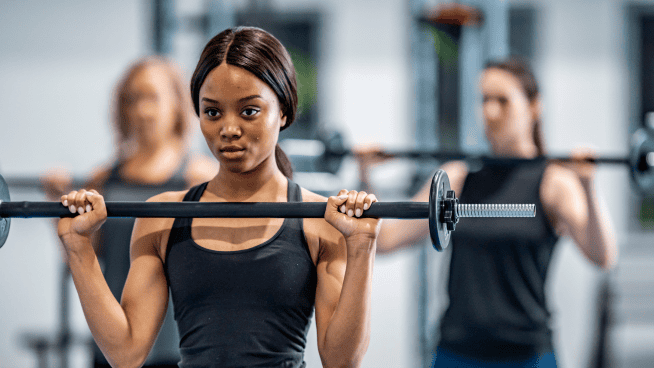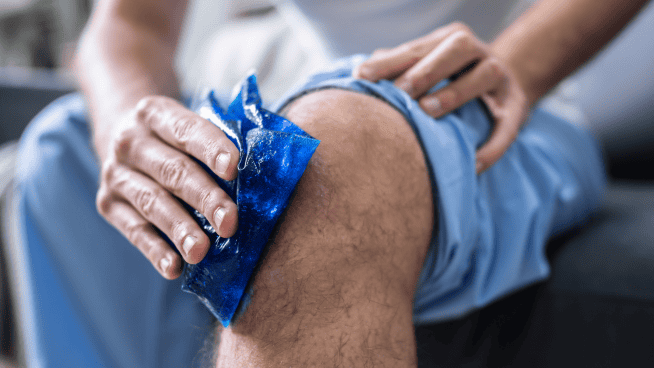5 Questions High School Athletes Should Ask Before Using Supplements
![]()
Nutritional supplements hold a lot of appeal for high school athletes looking for a quick and easy boost. Whey protein, creatine, branch-chain amino acids and nitric oxide all promise to improve strength and muscle mass. But is spending money on these items actually worth it?
Here are a few things to consider before you open your wallet:
1. Are you eating breakfast?
According to a study conducted by Kellogg’s, only 36 percent of American high school students eat breakfast every morning. If you’re undernourished, your athletic performance will suffer, as will your ability to remain focused in class.
When you forgo a morning meal, you lose out on the chance to provide your body with hundreds of quality calories. Supplementation won’t make up for this missed opportunity.
Get up a few minutes earlier each morning and prepare a meal. You can scramble a couple of eggs, grab a piece of fruit and have a bowl of oatmeal.
2. Are you getting enough sleep?
According to a 2007 youth risk behavior survey, 10 percent of high school students sleep only five hours per night, while 23 percent sleep only six hours on school nights. The average high school student needs nine or more hours of sleep per night, yet only 8 percent get enough sleep on an average night.
Rest is crucial to muscle growth. Your body releases its greatest levels of growth hormones during sleep. A lack of quality sleep can decrease your strength and power output and increase catabolic hormone concentrations, which cause fatigue and muscle and joint pain.
3. Are you picking the right exercises?
Walk into almost any weight room, and you’ll see people performing endless sets of Bicep Curls, Tricep Extensions and Calf Raises.
Isolation exercises like these can complement a training program, but only in small doses. If your goal is to build muscle and gain strength to improve sports performance, you should focus your strength training on compound exercises. Basic lifts like the Squat, Bench Press, Deadlift, Clean, Overhead Press and Chin-Up engage the most muscle mass and give you the greatest potential for growth.
Also, when you have a low level of training experience (as do most high school athletes), your body responds really well to progressive overload. Adding a little bit of weight to the bar every workout will lead to big gains over time and have a much more significant impact on your development than any non-steroidal supplement.
4. Are you eating the right foods?
Junk food like pizza, pasta, hot dogs and TV dinners will only slow you down. Instead, reach for high-quality complete protein sources like lean meats, fish and eggs. Protein fuels muscle growth, and consuming good sources of protein with every meal will improve your performance.
5. How many activities do you have?
Although it’s good to participate in a number of activities, you must allow your body to recover. Participating in practices and games five or six days a week for an entire year is not a good idea, because you risk injury, overtraining and burnout. Find a period of time each year to focus on recovery and improving your weak areas like strength, speed and power.
Sources
- “Breakfast in America.” Breakfast in America. Kellogg’s, n.d. Web. 23 Dec. 2014.
- Cook, Christian J., Liam P. Kilduff, and Marc R. Jones. “Recovering Effectively in High-Performance Sports.” High-Performance Training for Sports. N.p.: Human Kinetics, 2014. 325. Print.
- Duval, Sylviane. “Most High School Students Are Sleep Deprived.” Most High School Students Are Sleep Deprived. Center for Advancing Health, 5 Jan. 2010. Web. 27 Dec. 2014.
RECOMMENDED FOR YOU
MOST POPULAR
5 Questions High School Athletes Should Ask Before Using Supplements
![]()
Nutritional supplements hold a lot of appeal for high school athletes looking for a quick and easy boost. Whey protein, creatine, branch-chain amino acids and nitric oxide all promise to improve strength and muscle mass. But is spending money on these items actually worth it?
Here are a few things to consider before you open your wallet:
1. Are you eating breakfast?
According to a study conducted by Kellogg’s, only 36 percent of American high school students eat breakfast every morning. If you’re undernourished, your athletic performance will suffer, as will your ability to remain focused in class.
When you forgo a morning meal, you lose out on the chance to provide your body with hundreds of quality calories. Supplementation won’t make up for this missed opportunity.
Get up a few minutes earlier each morning and prepare a meal. You can scramble a couple of eggs, grab a piece of fruit and have a bowl of oatmeal.
2. Are you getting enough sleep?
According to a 2007 youth risk behavior survey, 10 percent of high school students sleep only five hours per night, while 23 percent sleep only six hours on school nights. The average high school student needs nine or more hours of sleep per night, yet only 8 percent get enough sleep on an average night.
Rest is crucial to muscle growth. Your body releases its greatest levels of growth hormones during sleep. A lack of quality sleep can decrease your strength and power output and increase catabolic hormone concentrations, which cause fatigue and muscle and joint pain.
3. Are you picking the right exercises?
Walk into almost any weight room, and you’ll see people performing endless sets of Bicep Curls, Tricep Extensions and Calf Raises.
Isolation exercises like these can complement a training program, but only in small doses. If your goal is to build muscle and gain strength to improve sports performance, you should focus your strength training on compound exercises. Basic lifts like the Squat, Bench Press, Deadlift, Clean, Overhead Press and Chin-Up engage the most muscle mass and give you the greatest potential for growth.
Also, when you have a low level of training experience (as do most high school athletes), your body responds really well to progressive overload. Adding a little bit of weight to the bar every workout will lead to big gains over time and have a much more significant impact on your development than any non-steroidal supplement.
4. Are you eating the right foods?
Junk food like pizza, pasta, hot dogs and TV dinners will only slow you down. Instead, reach for high-quality complete protein sources like lean meats, fish and eggs. Protein fuels muscle growth, and consuming good sources of protein with every meal will improve your performance.
5. How many activities do you have?
Although it’s good to participate in a number of activities, you must allow your body to recover. Participating in practices and games five or six days a week for an entire year is not a good idea, because you risk injury, overtraining and burnout. Find a period of time each year to focus on recovery and improving your weak areas like strength, speed and power.
Sources
- “Breakfast in America.” Breakfast in America. Kellogg’s, n.d. Web. 23 Dec. 2014.
- Cook, Christian J., Liam P. Kilduff, and Marc R. Jones. “Recovering Effectively in High-Performance Sports.” High-Performance Training for Sports. N.p.: Human Kinetics, 2014. 325. Print.
- Duval, Sylviane. “Most High School Students Are Sleep Deprived.” Most High School Students Are Sleep Deprived. Center for Advancing Health, 5 Jan. 2010. Web. 27 Dec. 2014.

